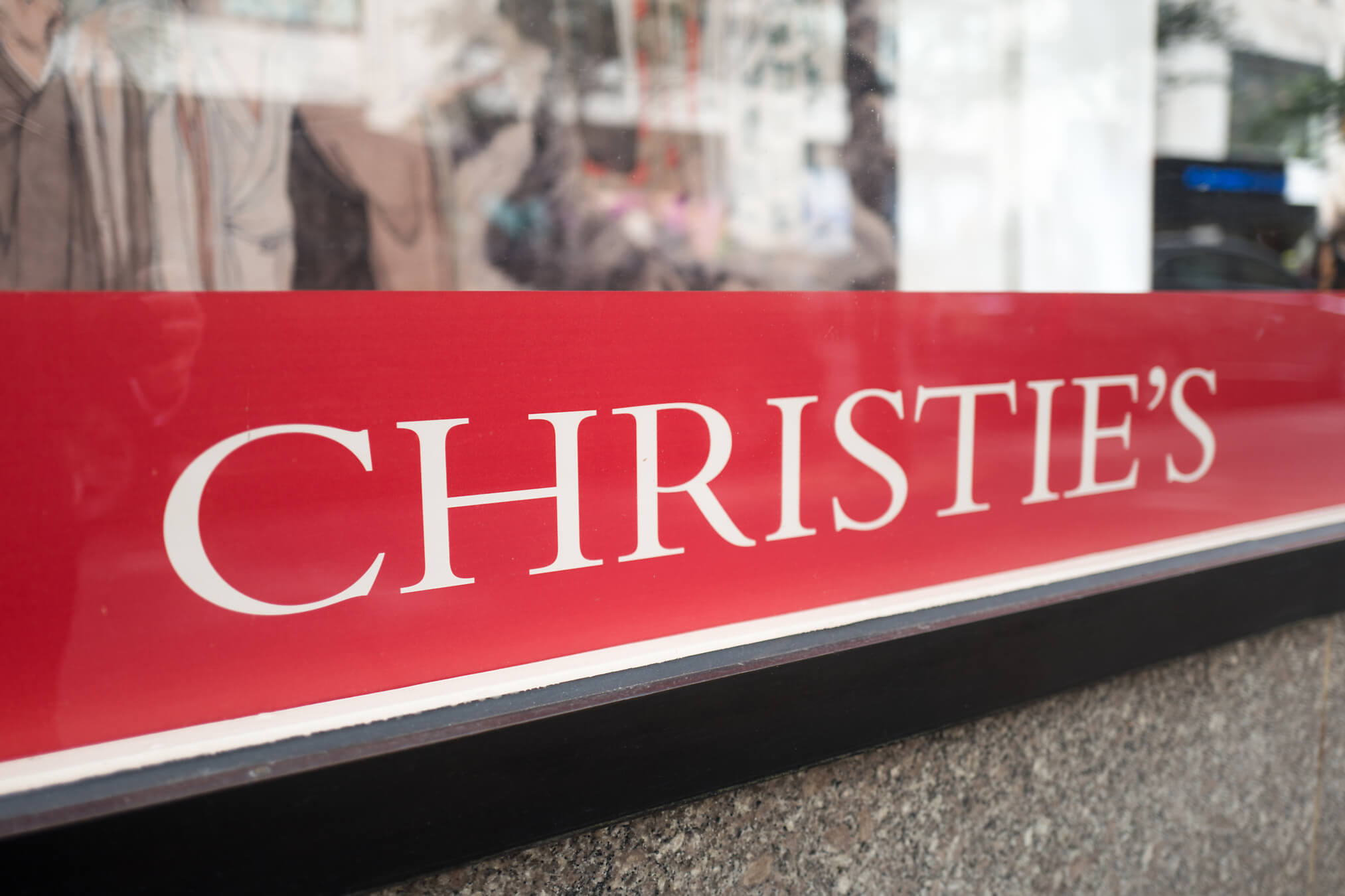Under pressure, Christie’s cancels jewelry sale from estate built on Jewish persecution
Christie’s sold some of late heiress Heidi Horten’s this spring and had scheduled a second sale

Signage for Christie’s auction house in Manhattan, New York City, New York, September 15, 2017. Photo by Smith Collection/Gado/Getty Images
Yielding to months of pressure from Holocaust survivor groups and other Jewish community organizations, Christie’s called off future auctions of a jewelry fortune rooted in Jewish persecution.
“The sale of the Heidi Horten jewelry collection has provoked intense scrutiny, and the reaction to it has deeply affected us and many others, and we will continue to reflect on it,” Anthea Peers, President of Christie’s EMEA, told Artnet News in an emailed statement.
The auction house faced a deluge of criticism when it announced last year that it was handling the estate of Heidi Horten, whose husband, Helmut Horten, made his fortune acquiring Jewish department stores after Nazi Germany outlawed Jewish business ownership.
Dazzling and dirty?
In its original announcement of “The World of Heidi Horten,” Christie’s made no mention of the source of Horten’s wealth or the German businessman’s membership in the Nazi party. Following the initial wave of outcry, it added a sentence: “The business practices of Mr. Horten during the Nazi era, when he purchased Jewish businesses sold under duress, are well documented.”
That proceeds of the sale were to go to the Hortens’ family foundation and not to survivors’ groups or other Jewish charities deepened the outrage.
Christie’s went forward with the auction anyway, and in May, it sold 98% of the lots for a total of $202 million, including one Cartier ring that went for $15 million. An additional sale was planned for the fall.
An Auschwitz survivor
Critics of Christie’s dismissed the auction house’s pledge to donate some of its proceeds to Holocaust education and research as insufficient. Jewish groups — including Yad Vashem, Israel’s Holocaust museum, and the Claims Conference, which is responsible for distributing reparations from Germany to survivors — have so far rejected donations offered by Christie’s. It remains unclear whether Christie’s will acquiesce to demands that it donate all profits from the sale.
One group of survivors, Holocaust Survivor Foundation USA, successfully lobbied groups to cut ties with the Horten Collection, the largest private art museum in Vienna.
And letters from the survivor foundation to the Tel Aviv Museum, which planned a conference on art restitution with Christie’s in December, prompted the museum to cancel the event.
David Schaecter, the 93-year-old president of the foundation who survived Auschwitz but lost his parents and sisters in the war, called the decision “an important victory” for Holocaust survivors, “and a clear signal to all auction houses about the consequences of providing such a platform to sell these kinds of tainted goods.”
His group is now calling for some of the proceeds from the spring auction of Horten’s jewelry to be routed to Holocaust survivors.
JTA contributed to this report.
















